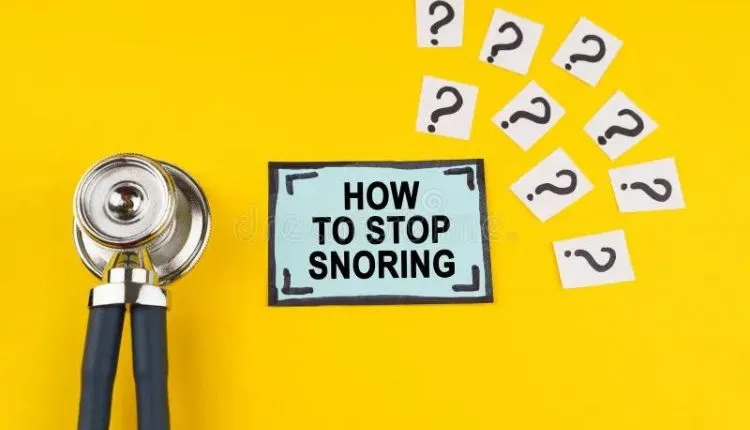Table of Contents
Introduction:
Snoring is a common sleep disorder that affects millions of people worldwide. It can disrupt sleep patterns, disturb the sleep of your partner, and even lead to more serious health issues if left untreated. While there are medical interventions available, many individuals prefer exploring natural remedies to alleviate snoring. In this article, we will discuss some effective home remedies that can help you deal with snoring and improve the quality of your sleep.
Maintain A Healthy Weight:
One of the leading causes of snoring is excess weight or obesity. When you carry excess weight, especially around the neck and throat area, it can put pressure on your airways and lead to snoring. By maintaining a healthy weight through regular exercise and a balanced diet, you can reduce the risk of snoring.
Change Your Sleeping Position:
Sleeping on your back often worsens snoring as it allows the base of your tongue and soft palate to collapse into the back of your throat, causing obstruction. To prevent this, try sleeping on your side. You can use a body pillow or place a tennis ball in a sock and pin it to the back of your nightwear to discourage back sleeping.
Keep Your Bedroom Air Humid:
Dry air can irritate the nasal passages and throat, leading to snoring. Using a humidifier in your bedroom can help add moisture to the air, reducing congestion and snoring. Opt for a cool mist humidifier, especially if you or your partner suffer from allergies or asthma.
Clear Nasal Congestion:
Nasal congestion is a common culprit for snoring. To clear your nasal passages, you can try using a saline nasal spray or rinse before bedtime. This can help remove mucus and open up the airways, reducing snoring. Additionally, elevating your head with an extra pillow can alleviate congestion and promote easier breathing.
Avoid Alcohol and Sedatives:
Alcohol and sedatives can relax the muscles in the throat, causing the airway to narrow and leading to snoring. It is advisable to avoid consuming alcohol or taking sedatives a few hours before bedtime to reduce the risk of snoring. Opt for herbal teas or warm milk instead, as they can have a soothing effect without affecting your breathing.
Practice Good Sleep Hygiene:
Maintaining a consistent sleep routine and practicing good sleep hygiene can significantly improve your sleep quality and reduce snoring. Ensure you have a comfortable mattress and pillow, minimize noise and light disturbances in your bedroom, and establish a relaxing bedtime routine to help you unwind before sleep.
Conclusion:
Snoring can be disruptive to your sleep and affect the well-being of both you and your partner. While medical interventions are available, trying out home remedies can be an effective and natural way to reduce snoring. Remember to maintain a healthy weight, sleep on your side, keep the bedroom air humid, clear nasal congestion, avoid alcohol and sedatives, and practice good sleep hygiene. By implementing these remedies, you can experience better sleep quality and enjoy restful nights.
FAQs:
- Can snoring be a sign of a more serious underlying condition? Yes, snoring can be a symptom of a more serious condition called sleep apnea. Sleep apnea is characterized by pauses in breathing during sleep and can lead to various health complications. If your snoring is accompanied by excessive daytime sleepiness, morning headaches, or pauses in breathing, it is recommended to consult a healthcare professional for a proper diagnosis and treatment.
Are there any natural remedies to treat sleep apnea? While natural remedies may help alleviate mild cases of snoring, they are not a substitute for professional medical advice and treatment for sleep apnea. If you suspect you have sleep apnea, it is crucial to consult a healthcare professional who can provide an accurate diagnosis and recommend appropriate treatment options, such as continuous positive airway pressure (CPAP) therapy or oral devices.
